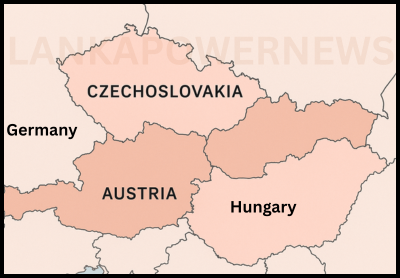Hitler Strategies With Czechoslovakia.
During the lead-up to the terrible and infamous second World War, Adolf Hitler, the invasion of Czechoslovakia means He made territorial moves toward Austria and Czechoslovakia, a direct disobeying of the Treaty of Versailles. Despite this fact, France and Britain only negotiated terms and ultimately allowed Hitler to continue his plans in the name of Appeasement. The Appeasement Era can be defined as the time in which the Allies attempted to avoid another world war and maintain international peace, because they were unprepared for drastic events, and held hope that Hitler would ultimately be satiated after a few territorial claims.

Invasion of Czechoslovakia.
The effects of the Great War also held the Allies in its firm grip, as no country wanted their soldiers to face the horrors introduced in that battle once more. Unfortunately, they were not ready for the goals he truly had in mind. Two major events of the Appeasement Era were the Anschluss with Austria, 1938, and The Czechoslovakians Crisis, 1938. ‘Anschluss’ meant ‘Union’, and it was forbidden by the Treaty of Versailles, but as Hitler had already gotten away with defying the Treaty once before, he had confidence in doing so again.
His desire for Austria was led by the personal connection of being an Austrian himself, as well as the fact that there were Germans living there. His plan was to have the Austrian branch of the Nazi Party create a disturbance within Austria, and then to send troops in to ‘protect’ German citizens. This earned him favour with many people. Hitler invaded Austria on March 12th, 1938, and it ceased to exist as an independent Nation. While many German and Austrian people had positive reactions to the invasion, international reactions could be seen as far from happy, and very Anti-Hitler already.

https://english.radio.cz/sites/default/files/styles/rcz_lightbox_v2/public/images/brezen_1939_nemecke_oddily_
vaclavske_namesti.jpg?itok=RMOZGwWJ×tamp=1710509059
Towards Sudetenland.
The Czechoslovak Crisis/The Munich Crisis took place in 1938, when Hitler began to make claims on an area of Czechoslovakian land called the Sudetenland, which housed ethnic Germans. The country itself had been created after the Great War and was home to an array of ethnicities, including Germans. It was a secure country despite its size, thanks to its allies of France and the Soviet Union, as well as pledges of support from Britain and the USSR, and the fact that it was well-armed. Invading it would not be as easy as Austria, where the majority of the population was German-speaking and supported the Anschluss. Despite these challenges, Hitler still vied for The Sudetenland because of ethnic Germans living there, the industrious area, mineral resources and weapons factories.

So, in April of 1938, Hitler’s Generals plan for the invasion of Czechoslovakia, telling Sudeten German Nazis to cause trouble in order for his troops to occupy the Sudetenland and ‘protect’ the ethnic Germans. By September of the same year Neville Chamberlain, British PM, flew to Hitler to negotiate a solution to the tension between Czechoslovakia and Germany. Agreements are made about areas of high German presence being given to Hitler, and Chamberlain convinces the French and Czechoslovakian leaders to agree as well – but only a week later, Hitler makes new demands (for other pieces of Czechoslovakia to be given up and that German troops would be allowed into Sudetenland).

https://res.cloudinary.com/aenetworks/image/upload/c_fill,ar_2,w_3840,h_1920,g_auto/dpr_auto/f_auto/q_auto:eco/v1/104418467_hu4nfo?_a=BAVAZGDX0
In the name of Peace.
Chamberlain rejected these demands and France and Britain prepared for war. However, the issues are ‘resolved’ when Mussolini suggests a conference to discuss solutions on the 29th of September. Britain, France, Italy and Germany meet to discuss – Benes (the Czech President) is not invited. Britain and France eventually agree on giving Sudetenland to Germany in the name of peace.
For me, reading about this historical era fills me with dread. With every act of defiance Hitler made in the years leading to the second World War, Britain and France simply had to watch and negotiate, holding no real power over him. The League of Nations collapsed – inevitable but still awful, as I personally valued the idea of the League. If only they had the additional power of America at the time, maybe they could have put a stop to Hitler’s advances. However, America was also suffering from the impacts of The Great Depression. In general, it was a time of incredibly unlucky timing, where every country but Italy and Germany recovered from catastrophes such as the War and the Depression, meaning no one was strong enough to stand up to the dictators of their time. It truly was a sordid time.







